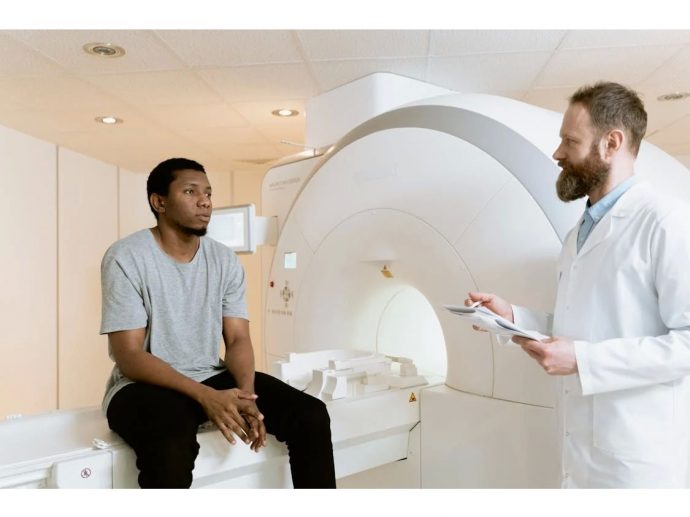Categories more
- Adventures (17)
- Arts / Collectables (15)
- Automotive (37)
- Aviation (11)
- Bath, Body, & Health (77)
- Children (6)
- Cigars / Spirits (32)
- Cuisine (16)
- Design/Architecture (22)
- Electronics (13)
- Entertainment (4)
- Event Planning (5)
- Fashion (46)
- Finance (9)
- Gifts / Misc (6)
- Home Decor (45)
- Jewelry (41)
- Pets (3)
- Philanthropy (1)
- Real Estate (16)
- Services (23)
- Sports / Golf (14)
- Vacation / Travel (60)
- Watches / Pens (15)
- Wines / Vines (24)
- Yachting / Boating (17)
What is an Outpatient Drug and Alcohol Partial Hospitalization Program?
Published
10/09/2024Substance abuse treatment choices can be tricky to navigate for those seeking help. Victims of substance abuse look for a way to get better without disrupting their routines. At the same time, they also require support in their recovery journey. One possible solution is the outpatient drug and alcohol partial hospitalization program (PHP), which offers a decent middle ground between intensive inpatient treatment and more flexible outpatient therapy options. This article explores the benefits of partial hospitalization programs.
An Overview of Partial Hospitalization Programs
Partial hospitalization programs offer intensive treatment for individuals dealing with substance abuse issues. They provide a higher level of care as compared to regular outpatient therapy sessions. Participants take part in therapeutic activities throughout the day and go back home in the evenings. The flexibility of PHP enables individuals to receive essential support while handling their personal responsibilities effectively. If you’re looking for outpatient drug and alcohol PHP in Dallas, TX, then consider these aspects.
Essential Aspects of PHP Programming
These services usually include a mix of treatments that take a personalized approach to healing individuals in need of help with their addiction issues. Group sessions and one-on-one therapy sessions, along with workshops, are at the heart of these programs. Doctors and experts in addiction work together to create customized recovery plans for every person seeking help. This personalized strategy guarantees that individual needs and objectives are catered to during the process of recovery.
Group Counseling Sessions
In group therapy sessions, participants build a sense of community by sharing their experiences and overcoming challenges with others in situations. This can be really empowering. These sessions offer chances to pick up tips from members and work on developing coping strategies, too. By fostering group dynamics that promote support and encouragement among participants, a network of accountability and motivation is created.
One on one Therapy Sessions
Individualized therapy sessions provide assistance in dealing with the root causes of substance misuse concerns. In such sessions, therapists delve into traumas and behavioral patterns that could be a trigger for substance abuse. Therapists closely guide individuals through this process for the best possible results. This tailored method aids in fostering a deeper understanding of addiction and sets the stage for enduring transformation. Continuous support offered by therapists plays a pivotal role in bolstering the journey to recovery.
Training Sessions for Learning
Education is crucial in PHPs (Partial Hospitalization Programs). The workshops address a variety of subjects, such as ways to prevent relapse, manage stress effectively, and delve into the aspects of addiction. Comprehending the complexities of addiction enables individuals to make informed choices regarding their path to recovery. These sessions provide attendees with resources to tackle obstacles and sustain their journey toward sobriety.
Healthcare Supervision
Healthcare providers play a role in supporting individuals throughout the program. They conduct health evaluations, monitor patients to prioritize physical well-being, and provide medication management to alleviate withdrawal symptoms or address any concurrent mental health issues that may arise, ultimately improving the overall efficacy of the treatment journey.
Lifestyle Change
One major benefit of PHPs is their flexibility. Since people can go to therapy sessions while managing their work and life responsibilities, they are not completely bound. This adaptability helps in transitioning from treatment to daily routines. Participants get to practice the skills they learn in real life situations, which strengthens their dedication to staying sober.
Establishing a Network of Support
Healing necessitates a network of support. PHP programs encourage individuals to establish bonds with their loved ones and peers. Getting family members involved in the recovery journey can enhance bonds and provide more support down the line while also promoting empathy. Support systems are vital for sustaining motivation and responsibility in the process.
Monitoring of Advancement
Keeping up with check-ins is vital to monitoring growth and modifying treatment strategies accordingly if necessary. This ensures individuals stay on track for their recovery journey by making necessary adjustments to therapy or medication based on changing requirements, ultimately increasing the likelihood of a successful outcome.
Picking the Appropriate Program for Your Needs
Choosing a hospitalization program requires deliberation. It is important to assess elements like the program's location, cost, and treatment options offered. Seeking guidance from healthcare professionals or addiction experts can offer new perspectives that one might not have considered. Ultimately, discovering a program that meets needs and objectives can improve the chances of achieving recovery.
The Journey to Healing
Starting the path to healing demands bravery and dedication. A program for outpatient drug and alcohol treatment that operates during the day but allows flexibility is a great place to start. By merging therapy with daily tasks, people can strive towards achieving enduring sobriety. The encouragement from healthcare experts, counselors, and companions fosters an atmosphere conducive to transformation.
In Conclusion
When exploring the world of substance abuse, treatment choices can seem overwhelming at first glance. Comprehending the advantages and characteristics of PHPs brings clarity to the situation. These programs present a flexible route to healing that empowers individuals to take control of their lives. By staying committed and receiving support along the way, the path toward sobriety becomes within reach.















